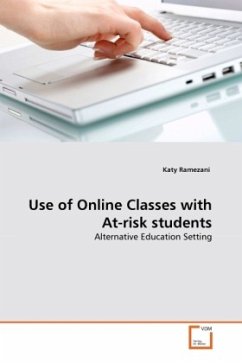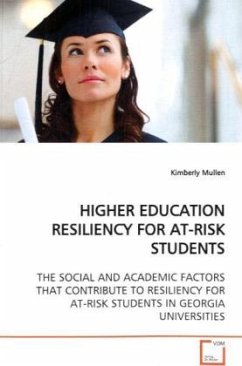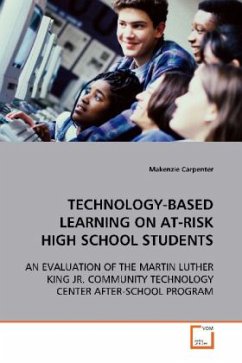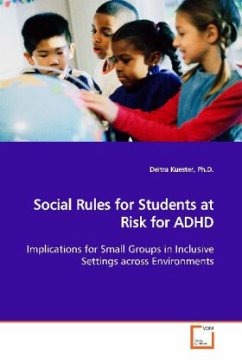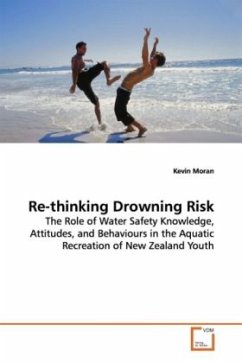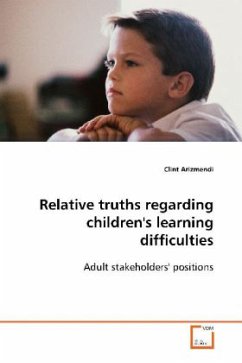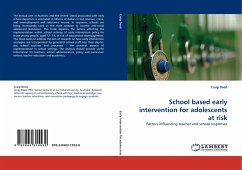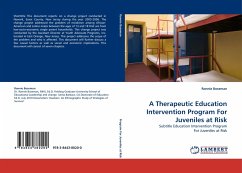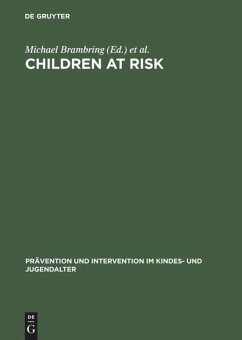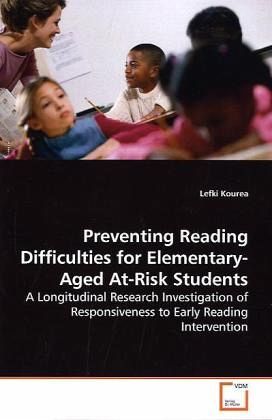
Preventing Reading Difficulties for Elementary-Aged At-Risk Students
A Longitudinal Research Investigation of Responsiveness to Early Reading Intervention
Versandkostenfrei!
Versandfertig in 6-10 Tagen
52,99 €
inkl. MwSt.

PAYBACK Punkte
26 °P sammeln!
This study investigated the effectiveness of asupplemental early reading intervention package onthe segmentation, blending and oral reading fluencyskills of 23 urban first-grade students, includingEnglish Language Learners (ELLs), who continued to beat reading risk after receiving intensivephonological awareness training the previous year inkindergarten (i.e., ERI-Treatment Group). Sixinstructional assistants received a six-hour trainingpackage to deliver the intervention to theERI-Treatment Group across three urban high povertyschools. Pre- and posttest standardized measures(WJ-III; CTOPP) an...
This study investigated the effectiveness of a
supplemental early reading intervention package on
the segmentation, blending and oral reading fluency
skills of 23 urban first-grade students, including
English Language Learners (ELLs), who continued to be
at reading risk after receiving intensive
phonological awareness training the previous year in
kindergarten (i.e., ERI-Treatment Group). Six
instructional assistants received a six-hour training
package to deliver the intervention to the
ERI-Treatment Group across three urban high poverty
schools. Pre- and posttest standardized measures
(WJ-III; CTOPP) and tri-weekly progress monitoring
data were collected to evaluate student progress.
Data were analyzed with regression models, contrasts,
and repeated measures mixed-effects modeling. The
findings highlight the importance of intensive
phonological awareness training and its potentially
lasting effects to reduce the reading risk of
extremely vulnerable students. They also underscore
the need to provide ongoing intensive support,
depending on students responsiveness to intervention.
supplemental early reading intervention package on
the segmentation, blending and oral reading fluency
skills of 23 urban first-grade students, including
English Language Learners (ELLs), who continued to be
at reading risk after receiving intensive
phonological awareness training the previous year in
kindergarten (i.e., ERI-Treatment Group). Six
instructional assistants received a six-hour training
package to deliver the intervention to the
ERI-Treatment Group across three urban high poverty
schools. Pre- and posttest standardized measures
(WJ-III; CTOPP) and tri-weekly progress monitoring
data were collected to evaluate student progress.
Data were analyzed with regression models, contrasts,
and repeated measures mixed-effects modeling. The
findings highlight the importance of intensive
phonological awareness training and its potentially
lasting effects to reduce the reading risk of
extremely vulnerable students. They also underscore
the need to provide ongoing intensive support,
depending on students responsiveness to intervention.



